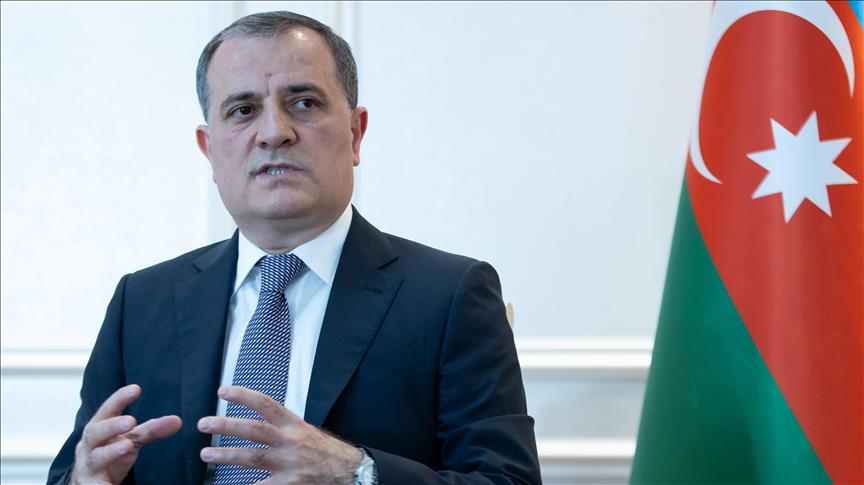Azerbaijani Foreign Minister Jeyhun Bayramov said on Tuesday that Baku’s role in international energy supply and transit transportation increased in 2022.
Bayramov announced the development of Azerbaijan’s role in energy supply and transit transportation during a news conference summarizing Baku’s foreign policy actions in the year.
He said Azerbaijan attaches importance to bilateral relations and has focused on relations with neighboring countries.
“Joint works have been done with Türkiye in all fields arising from the Shusha Declaration, and new documents have been signed,” Bayramov said about relations with Ankara, adding that meetings were held between Azerbaijani and Turkish leaders during bilateral visits and on international platforms.
“Azerbaijan-Russia cooperation continued successfully in 2022. President Ilham Aliyev paid one official and many working visits to Russia. Extensive cooperation between the relevant ministries continued,” Bayramov noted about Baku-Moscow relations.
Bayramov also noted intense dialogue between Azerbaijan and Georgia, in terms of which “the agenda of friendship and cooperation” was broad and “steadily developing.”
He further mentioned efforts to develop relations and cooperation with Iran, European countries, the US, and China.
“During the year, intergovernmental commission meetings were held with each of the five Central Asian countries,” he also said.
The country has increased its diplomatic representation to 89 countries, including new embassies being established in Israel and Albania and the appointment of ambassadors in the Vatican and Bosnia and Herzegovina, Bayramov added.
- Small progress achieved due to Armenia’s ‘non-constructive position’
Bayramov also noted that little progress has been made in talks with Armenia, which he said is the case due to Yerevan’s “non-constructive position.”
"Three meetings were held on delimitation. Despite all this, little progress has been made. The reason for this is Armenia's non-constructive position," Bayramov said.
He noted that Armenia continues to violate its obligations under the tripartite peace agreement involving Russia, which he attributed to “illegal Armenian armed groups remaining in the territories of Azerbaijan, illegal exploitation of our natural resources, and the problem of landmines.”
These issues are being conveyed on an international level to international organizations, Bayramov added, saying new claims will be made in 2023 by Baku against Yerevan “because of the damage caused to the environment and living nature, as well as the illegal exploitation of energy resources and natural resources.”
Bayramov also said Armenia’s position regarding the Zangezur corridor will just harm itself, further noting that it will benefit Yerevan to fulfill its obligations, rather than “taking pragmatic steps only in terms of its national interests.
"The position of the Russian side is that this is a tripartite statement, and Armenia is also a signatory to it. This is Armenia's obligation, and Armenia must ensure the withdrawal of Armenian armed forces from Karabakh. This is an obligation of Armenia and they are violating this obligation. In parallel, it creates tension in the region. In many cases, the cause of tension in Karabakh is the activity of illegal armed groups there," he added.
Relations between the two former Soviet republics of Armenia and Azerbaijan have been tense since 1991 when the Armenian military occupied Nagorno-Karabakh, a territory internationally recognized as part of Azerbaijan, and seven adjacent regions.
In the fall of 2020, in 44 days of clashes, Azerbaijan liberated several cities, villages, and settlements from Armenian occupation. The Russian-brokered peace agreement is celebrated as a triumph in Azerbaijan.
By Burc Eruygur
Anadolu Agency
energy@aa.com.tr


